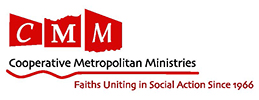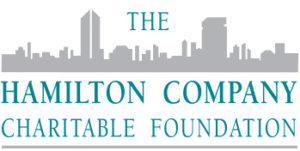Values over Violence
The collaboration between several organizations in both urban and suburban communities in Greater Boston through Cooperative Metropolitan Ministries seeks to reduce violence throughout the area. We work with an innovative approach that was first pioneered by ESPERE with Fundación para la Reconciliación in the gang-ravaged ghettos of Bogotá, Colombia, and has since spread to more than 15 Latin American countries. Through our partnership with Forgiveness International, we seek to bring this work to anglophone North America. The ESPERE materials have received a UNESCO prize and other international honors for their proven track record in reducing violence. The premise of this approach is based on the well-founded belief that social violence is a result of many factors found in underserved communities, including poverty, unemployment and a general sense of helplessness about the future. Violence, immediate, structural or cultural, is not limited to any one population sector.
Values over Violence is a program to foster dignity through a civic culture based on forgiveness and reconciliation. It trains youth and adults to examine their emotions, learn to identify events which trigger anger and revenge, and look at choices about how to handle these events. We focus on the need to address the emotional issues stemming from violence, felt by victims, perpetrators, and the community. Without emotional and spiritual healing, it becomes impossible to step beyond violence and chart a new direction. Participants are trained to help move persons from the onset of violence through possibilities of forgiveness and degrees of reconciliation toward constructive civil engagement.
We are one of the proud recipients of the Cummings Foundation $30mil Grant Program
Other grants received from:
Schools of Forgiveness & Reconciliation (ESPERE) workshops deal in the following areas:
Manual on Forgiveness
1. Violence & Motivation
The motivation for this work comes with our experience of violence which may be personal, communal, or structural, and cultural. Violence tends to promote a violent reaction. It shapes our sense of meaning, pattern of social relations and feelings of security.
2. From Darkness to Light
The purpose of this module is to focus us on the effects of aggression on the emotions, thought, and behavior and to determine the consequences of rage and pain on physical and emotional health. Rage is not, in itself, good or bad; it is an emotion that appears without our being able to control it. What is important is that we know what we are going to do with it and the kind of behavior we are going to have when we feel rage.
3. I Decide to Forgive
An aggression to our person is an occasion for revenge or forgiveness. Forgiveness is presented as the best alternative to overcome resentment and hatred provoked by aggression. It is important to forgive because rancor and rage weaken me physically and emotionally. Forgiveness allows me to discharge the negative image of the offender that constantly makes me a martyr, reminding me of a negative event in my life. We should differentiate between what is Forgiveness and what is not.
4. I See with New Eyes
The objective of this module is to promote compassion and empathy with the offender, facilitating the building of a new narrative of the offense to recognize the similarities and differences of each person with the others around them.
5. I Understand My Offender
The purpose of this chapter is to expand our concept of compassion to include the narratives that guide our lives. It is to understand the behavior of the offender as a result to issues in his or her own life. The exercises in this chapter are meant to help understand the different perspectives that have been held about the offense.
6. I Break Chains & Cleanse Pain
The objective of this module is to establish the ideal conditions that will allow the eventual encounter with the offender. This is a module of transition from forgiveness to reconciliation. Forgiveness is an individual choice; reconciliation is a choice to be made with an “other.” The ESPERE schools suggest possible paths for reconciliation: at a distance, closer but with a prudent separation, or a tighter reconciliation where bonds of love and fraternity are possible.
Manual on Reconciliation
7. I Build Truth
Truth and communication are two basic elements of the reconciliation process. It takes the work of both parties to determine the different versions that are held concerning the offense and the process of forgiveness and reconciliation work that can be seen to be favorable when the strategies of clear and assertive communication enable the reconstruction of the facts.
8. I Promote Justice
The promotion of justice is presented in this module as a necessary condition for the whole process of reconciliation. A person, community or society that wishes to advance in the work of reconciliation should promote justice. In this material the work of restorative justice is presented as process where achieving justice is more than punishing a guilty individual. In restorative justice both the offended person and this offender must be restored.
9. I Make a Pact
In addition to promoting the building of truth and promotion of justice, ESPERE also suggested the need to make pacts (or covenants, contracts or constitutions) once people, neighborhoods or societies move forward in the process of reconciliation.
10. I Celebrate Memory
The objective of this module is the restoration of the memory of individual and collective events as a way or re-establishing the meaning of identity and promoting restoration for the prevention of new harmful acts. It is to promote the practice of celebration as a fundamental ritual to strengthen the commitment to living together and to a new life.
Resources:
Schools of Forgiveness and Reconciliation: Constructing Peace (in English & Spanish)
Fundación para la Reconciliación
Workshops are typically 10 weeks in length and meet for 2-3 hours once or twice a week. Other arrangements and pilot workshop configurations are possible.
“Against the irrationality of violence, we promote the irrationality of reconciliation.”
“Political culture of forgiveness and reconciliation: unavoidable challenge for human survival.”



